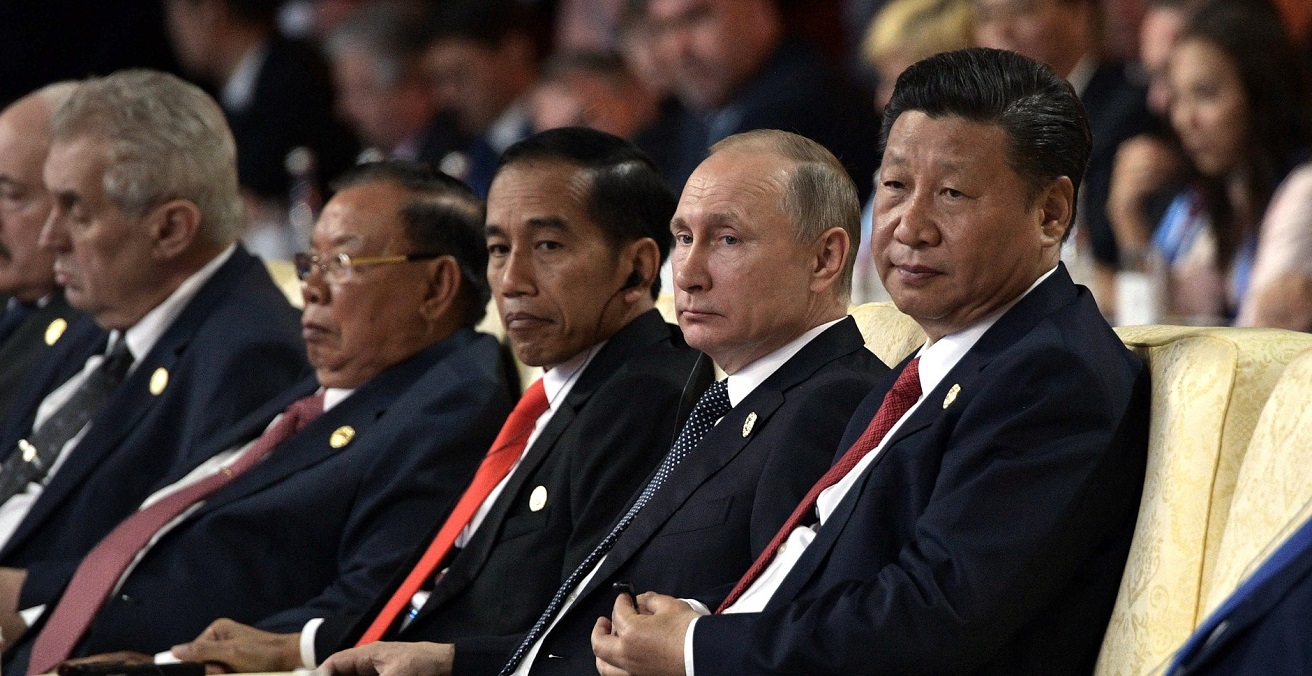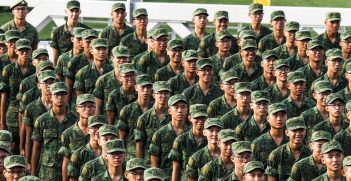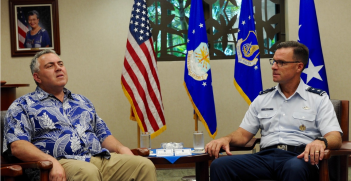The China-Indonesia-Russia Trilateral Meeting and What it Means

The recent Trilateral dialogue between China, Indonesia, and Russia can be seen as a useful platform to test for new areas of cooperation. While many differences within the group persist, shared interests are likely to be hyped with key antagonisms conveniently forgotten.
On the sidelines of a series of ASEAN Meetings in Jakarta in July, Indonesia conducted a trilateral dialogue with China and Russia. The foreign ministers broadly discussed the need for collaboration in overcoming concerns of large power differences and their impacts on a number of regional and global issues, specifically on China’s growing influence in the ASEAN region and the roles of Western countries in the Russia-Ukraine issue.
At the opening of the meeting, the Indonesian minister for foreign affairs, Retno Lestari Priansari Marsudi, said that as chair of ASEAN, Indonesia wanted more dialogue and cooperation with China and Russia. Issues highlighted across the talks included western criticism of Russia for its invasion of Ukraine and food and energy security. Additional emphasis was placed on China’s assertive stance in the South China Sea, which has several direct security implications for ASEAN member countries over maritime claims. During the event, it was also stressed that Indonesia would continue to push for the acceleration of negotiations on the code of conduct of the South China Sea between ASEAN and Beijing.
China, Indonesia, and Russia also affirmed their commitment to coordinate efforts for enhancing the economic stability of the “Global South” on the basis of “all countries’ respect for the principle of equality and mutual benefit in world economic relations.” It is also reported that views were exchanged on strengthening ASEAN-centric security and cooperation architecture in the Asia-Pacific region.
During the meeting, Russian foreign minister Sergey Lavrov and China’s recently returned-to-office foreign minister, Wang Yi, expressed their support for Indonesia as Chair of ASEAN, with Wang Yi saying that China supports the ASEAN-centric regional cooperation structure, and Lavrov declared that ASEAN is “the best basis” for discussing regional issues. The latter thanked Jakarta for providing the opportunity for the trilateral meeting.
Significance
While the continuity of the Russia-India-China Trilateral, established in the 2000s, has been the topic of much discussion, a new window of opportunity appears to be opening for the tripartite relationship. This is not surprising even though the meeting is still only at the level of foreign ministers. Currently, however, there is no concrete indication a further formalisation of the trilateral will be sought. In recent years, ties between China and Indonesia have experienced considerable growth. China and Russia have certainly moved closer in both economic and strategic terms. Meanwhile, Russia-Indonesia relations, while limited in the economic sense, have strengthened, particularly since many Indonesians appear supportive of Russia despite the latter’s invasion of Ukraine.
This support among ordinary Indonesians is motivated by two main factors. The first is the anti-American and anti-Western political sentiments of the Indonesian people, which grew considerable following what was considered “American aggression” in the Middle East during the War on Terror. Second, it is difficult for many Indonesians to see that the conflict in Ukraine is between Moscow and Kiev, rather than as a problem between Russia and the West. The people see that anyone who opposes America, must be broadly defended.
While there is some hype about the emergence of a tripartite bloc, the meeting is unlikely to transform into a more formal association of shared interests. Key underlying differences persist. Indonesia is still likely view Beijing’s interests with suspicion, given the latter’s growing aggressiveness in the South China Sea. Despite discussing the South China Sea issue during the meeting, there were likely few expectations of a breakthrough in tensions. China has shown little intention of changing its aggressive behaviour, seen by many as counterproductive. Indonesia, for its part, has proved ultra cautious in its dealings with Beijing, given its economic priorities, which are strongly dependent on China.
Moscow’s relations with Beijing are also subject to disagreements. China does not consider Crimea a legitimate part of Russia, and Moscow maintains neutrality in Beijing’s South China Sea claims. In an Indo-Pacific trilateral context, these policy positions are not unimportant. The future potential for power competition between China and Russia, where subordinated roles are enhanced, will further question the logic of deepening ties.
For now, the meeting has served as a platform for the three countries to strengthen cooperation on the limited shared interests they possess. These include food and energy issues. Though there is a possibility that in the future, the three would cooperate on climate and financial crises.
Future prospects
While the meeting could be seen as part of Indonesia’s effort to present itself as a new peaceful force in global politics, recently demonstrated with its leadership in G20 and ASEAN, for China and Russia, this is also relevant to their interests. China, which is still in the middle of a trade war with the US, is looking to expand its influence and its circle of friendship.
Meanwhile, Russia, which is burdened with crippling economy sanctions by western countries, is looking to explore ASEAN economic and political partnerships. Indonesia, a country with the largest population and GDP in the region, and a growing global actor, is critical to this calculation. While Jakarta has adopted the UN General Assembly’s resolution condemning the invasion and demanding that Russia immediately withdraw from Ukraine, leaders have sought to avoid antagonizing Moscow for what might be crucial economic gains.
Finally, there is a possibility that the trilateral can be employed as a platform for China and Russia to invite Indonesia into their own multilateral networks, such as the Shanghai Cooperation Organisation and BRICS. In recent years, China and Russia have tried to advance their own networks of multilateral and bilateral strategic relationships as alternatives to alliances led by the United States. It is in this context that China has been trying to invite Indonesia to join BRICS, with some suggesting that Indonesia is interested in joining in.
For the time being, the latest trilateral meeting will have been useful as a means to test the waters for new areas of cooperation. While China and Russia have their own disagreements, Indonesia is likely to take a cautious step in moving forward given its non-alignment foreign policy, and its relatively robust cooperation with the US.
Dr Muhammad Zulfikar Rakhmat is a researcher at the Center of Economic and Law Studies, Jakarta. His research focuses on China-Indonesia-Middle East relations. Yeta Purnama is also a researcher at the Center of Economic and Law Studies.
This article is published under a Creative Commons License and may be republished with attribution.





